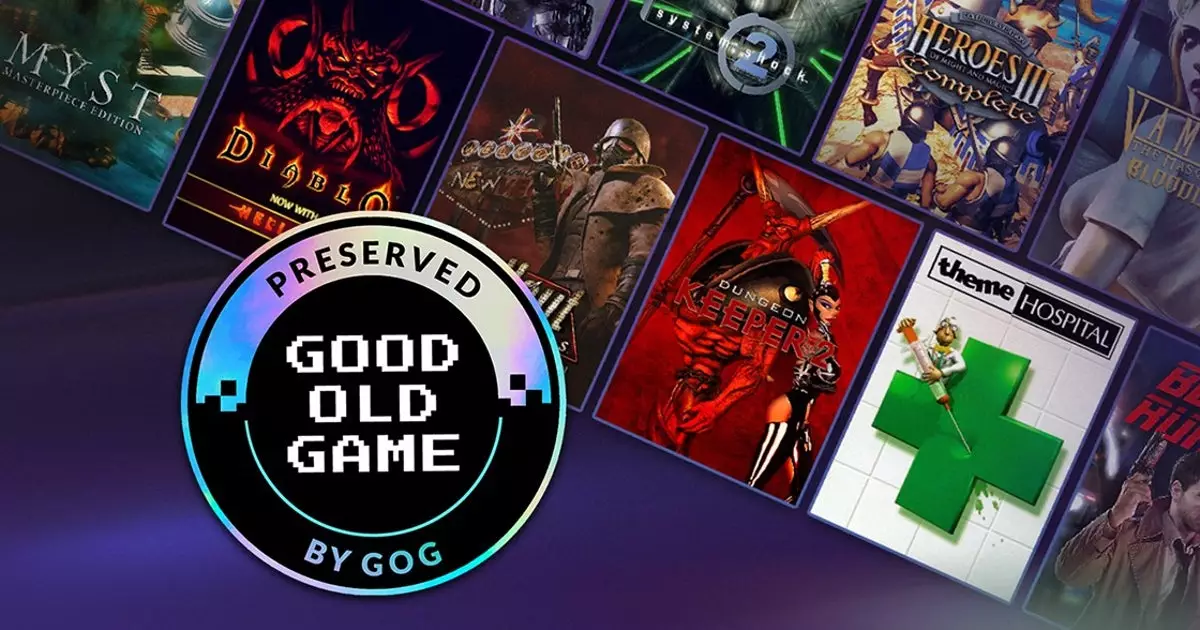In recent years, GOG (Good Old Games), initially lauded as a bastion for classic gaming, has broadened its catalog to include a wider array of modern titles. This evolution has somewhat softened its pioneering status in game preservation, transforming it into a platform reminiscent of DRM-free versions of Steam. However, this year marks a refreshing pivot for GOG, recently announcing its commitment to not only revive classic games but also to enhance their compatibility with contemporary systems through the establishment of the “GOG Preservation Program.” This ambitious initiative aims to rejuvenate older titles, ensuring they remain accessible and enjoyable for gamers today.
At its core, the GOG Preservation Program is designed to streamline and modernize the experience for classic gaming enthusiasts. This effort extends beyond merely selling old titles; it incorporates comprehensive improvements that include fixing bugs, updating essential features, and ensuring compatibility with the latest versions of Windows. By integrating these updates, GOG seeks to ensure that players can dive back into beloved classics without grappling with a myriad of unofficial patches or cumbersome workarounds. Each game that undergoes this careful restoration will be adorned with a “Good Old Game” badge, allowing users to identify which titles have been modified for optimal performance on modern hardware.
Moreover, GOG’s approach borrows insights from Valve’s Steam Deck Verified system. This not only underscores their commitment to ensuring efficient gameplay across various platforms but also highlights a broader trend among game retailers to accommodate hand-held gaming experiences. The ongoing efforts include the incorporation of modern video codecs and an overall enhancement of user experience, ensuring that nothing stands between gamers and their cherished titles.
To kick off its preservation efforts, GOG has ambitiously relaunched over 100 classic games as part of this initiative. Iconic titles such as the Resident Evil trilogy, the original Diablo along with its Hellfire expansion, and Vampire: The Masquerade – Bloodlines are among the highlighted games receiving the coveted “Good Old Game” badge. These releases promise to be the most comprehensive versions of each title, including all downloadable content (DLC), expansions, and even accompanying manuals and alternative language packs. This initiative directly addresses an essential component of the gaming experience — accessibility to the full breadth of content originally offered, allowing newcomers and returning players alike to enjoy these classics in their entirety.
Despite this promising initiative, the successful execution of the GOG Preservation Program is fraught with challenges. Many classic games rely heavily on original code that developers or publishers may be reluctant to revisit. Permissions are essential for any restoration efforts, and negotiating these rights can often be a daunting task. Hence, while GOG expresses a vision of eventually encompassing all games—new or old—within their preservation program, the practicalities of this ambition may prove complicated.
Moreover, in an industry that increasingly focuses on profit margins, GOG, like all retailers, must carefully navigate the line between maintaining a commitment to preservation and ensuring their business remains viable. Selling games remains the priority; thus, game preservation must ultimately serve a market need rather than purely an altruistic aim of cultural conservation.
The launch of the GOG Preservation Program is a laudable endeavor, marking a significant step back toward the spirit of game preservation that initially defined the platform’s ethos. For players dissatisfied with modern gaming trends that often obfuscate the legacy of classic titles, GOG’s renewed focus provides hope. As gamers continue to voice concerns over disappearing titles due to server shutdowns and outdated technology, GOG’s proactive approach is not just timely but necessary. This initiative reflects the broader industry conversation surrounding the importance of preserving gaming history while reminding players that their cherished experiences remain significant. Ultimately, the success of the GOG Preservation Program will depend as much on community support as it will on GOG’s ability to navigate the complexities of game development partnerships to keep these classics alive.


Leave a Reply